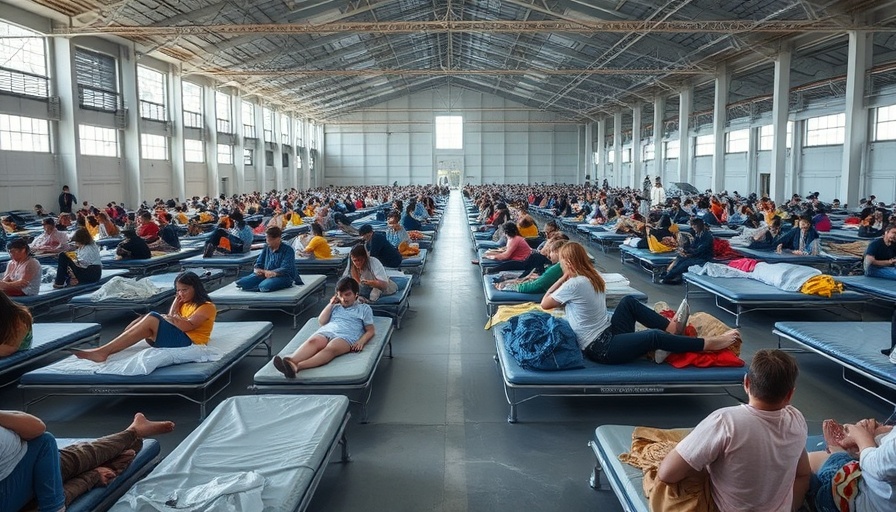
Understanding the Cost of Border Policy in Texas
At the Texas-Mexico border, the impact of Governor Greg Abbott’s Operation Lone Star (OLS) extends beyond political theater, reverberating through communities like Eagle Pass. A group called Never Again Action visited this area, grounded in Jewish values which compel them to fight against the injustices experienced by immigrants. Their stance is not only about protecting human rights; it insists on the moral obligation to oppose oppression, echoing the ancient teachings from the Torah.
What's at Stake for Local Communities?
The OLS has shifted resources away from communities in desperate need, concentrating billions on militaristic border control rather than uplifting residents. Activist Amerika Garcia Grewal highlights how this operation has resulted in a brain drain, driving potential professionals away from Maverick County. As healthcare and education suffer, the gap widens, amplifying the struggles of a population already grappling with high poverty rates.
The Broader Implications of Militarization
Interestingly, the consequences of OLS are felt far beyond just a few border towns. Even distant places like Brackettville experience increased tensions due to high-speed chases initiated by state police. The loss of life, particularly of children, raises questions about the actual effectiveness of heightened security initiatives. As one local organizer shared, “How does risking life on the road make anyone safer?”
A Future Focused on Community Not Control
Consider the potential of redirecting the resources poured into OLS toward community development. Visualize the opportunities for local children to pursue higher education or for healthcare facilities to thrive with qualified professionals. Instead, Abbott’s policies yield a different future, one rife with chaos and insecurity, mischaracterizing the intention of safety while further isolating vulnerable populations.
Countering Common Misconceptions
Many proponents of intensified border control point to “security” as justification for OLS. However, local voices challenge this narrative, emphasizing that enforcement strategies fail to address the root issues facing border communities. Instead of flying blind into militarization, we must advocate for solutions that prioritize healing over hostility and community over division.
A Call for Change and Justice
The spirit of activism showcased by Never Again Action delivers a vital message to Texans: it is time to reject ineffective measures and champion policies that uplift rather than suppress. As moral advocates, community members have the power to steer discussions on immigration toward humanity and compassion. Every Texan can be part of this push for justice, making a concerted effort to speak up for those targeted by divisive narratives.
Conclusion: Building a Better Tomorrow
The disparity brought forth by Operation Lone Star should ignite a collective conscience among Texans. Engaging in active dialogue and understanding the implications of border policies can shift perceptions and inspire community action. The desire for justice is unmistakable; now is the time to ensure no one is left behind in this narrative. Together, we can create a Texas rooted in fairness, compassion, and opportunity.
 Add Row
Add Row  Add
Add 




Write A Comment